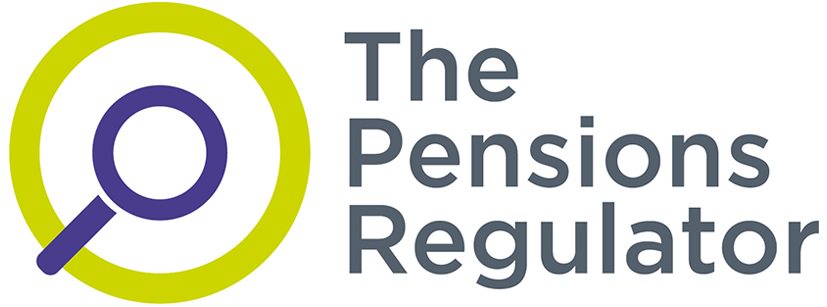The Department for Work and Pensions (DWP) will publish three pensions-related reports on Monday (21 July), prompting experts to suggest the long-awaited pensions adequacy review could be launched the same day.
The titles of the three reports - Analysis of Automatic Enrolment Saving Levels, Analysis of Future Pension Incomes 2025 and Gender Pensions Gap in Private Pensions, all relate to pensions adequacy.
The report on automatic enrolment savings levels will set out an analysis of the average contribution rates into workplace pensions and the proportion saving at minimum levels, while the report on future pension incomes will show an analysis of undersaving for retirement in the working-age population and future pensioner incomes.
Meanwhile, the gender pensions gap in private pensions report will show an analysis of the gender pensions gap in private pensions during the period 2020 to 2022.
Additionally, yesterday (16 July) the Secretary of State for Work and Pensions, Liz Kendall, said in a meeting at the House of Commons, when questioned about adequacy, that “there will be more to say about pensions before the House goes into recess, in terms of some of the longer-term challenges facing today’s workers and tomorrow’s pensioners”.
She added that she is “very concerned” about the adequacy of pensions and said there is a “huge” benefit of auto-enrolment, but many people are still not saving, and that is a real risk for them.
In particular, she said that the government will have “more to say about that next week”.
She emphasised the role of the Pension Schemes Bill, which she said is a “really important first step” to try to bring those small pension pots together, with better results for savers and better results for the UK economy.
When questioned further on adequacy in terms of steps being taken, Kendall said: “We will be saying more soon about the next phase of our pensions review.
“I do not accept that tomorrow’s pensioners should be poorer than today’s, but that means we have to do the long-term thinking and build the consensus that we need to give people a decent retirement.
“We all want to look forward to our retirement, but as you say, 40 per cent of people are not going to retire on the minimum defined adequate income.
“The truth is that that will be terrible for them, but we will all end up picking the pieces of pensioner poverty, so we have to take some difficult, longer-term decisions to tackle those problems.”
Commenting on the possibility of the review being announced next week, Broadstone head of defined contribution (DC) workplace savings, Damon Hopkins, said the launch of the “long-awaited” review on pension adequacy will mark a “critical inflexion point” in the nation’s retirement finances.
“Hiking contributions is undoubtedly the fastest way to tangibly increasing savers’ pension pots so they can enjoy a good standard of living in retirement and is likely to feature prominently in review,” he said.
“We face a huge retirement adequacy problem with profound social impacts following the Office for Budget Responsibility’s recent warning that low pension savings could lead to a greater reliance on the government to support pensioners via a benefits system which is already unaffordable.”
Hopkins added that understanding the role of the state pension and closing the pensions gender gap should also be an “important focus” of the review.
“While reforms should ultimately bolster the long-term financial security of workers, the government will need to be wary of the financial burden on employers,” he said.
“Given the recent increases in national insurance contributions and national minimum and living wage rates, employers will need to start considering how they manage potential increased pension costs across the medium-long term.”
In the Mansion House speech earlier this week (15 July), Chancellor, Rachel Reeves, failed to to announce the launch of the second phase of the pensions review, following previous reports that Reeves would announce plans to appoint a commission to lead the pensions adequacy review, looking at auto-enrolment rates alongside the state pension and savings of the self-employed.
The industry have been vocal about calling for change in this area, as experts previously urged the government to launch the second phase of the review "sooner rather than later" amid concerns that many savers are still not saving enough, with widespread disappointment over the news that the bill was not laid before the end of last year, as suggested initially by the government.
Pensions Minister, Torsten Bell, has repeatedly hit back at claims that the second phase of the review had been postponed, branding the suggestion that this issue had been kicked into the long grass as "nonsense".
Latest News
-
Govt urged to prioritise pension policy stability in Spring Statement
-
Just Group underlying operating profit falls by 39%
-
Employers warned modest pension defaults risk worsening adequacy gap
-
Aegon updates modelling tool to help members benchmark retirement needs
-
News in brief - 27 February 2026
-
PPF levy to remain at zero for 2026/27
Private markets – a growing presence within UK DC
Laura Blows discusses the role of private market investment within DC schemes with Aviva Director of Investments, Maiyuresh Rajah
The DB pension landscape
Pensions Age speaks to BlackRock managing director and head of its DB relationship management team, Andrew Reid, about the DB pensions landscape
Podcast: From pension pot to flexible income for life

Podcast: Who matters most in pensions?

In the latest Pensions Age podcast, Francesca Fabrizi speaks to Capita Pension Solutions global practice leader & chief revenue officer, Stuart Heatley, about who matters most in pensions and how to best meet their needs
© 2019 Perspective Publishing Privacy & Cookies











Recent Stories